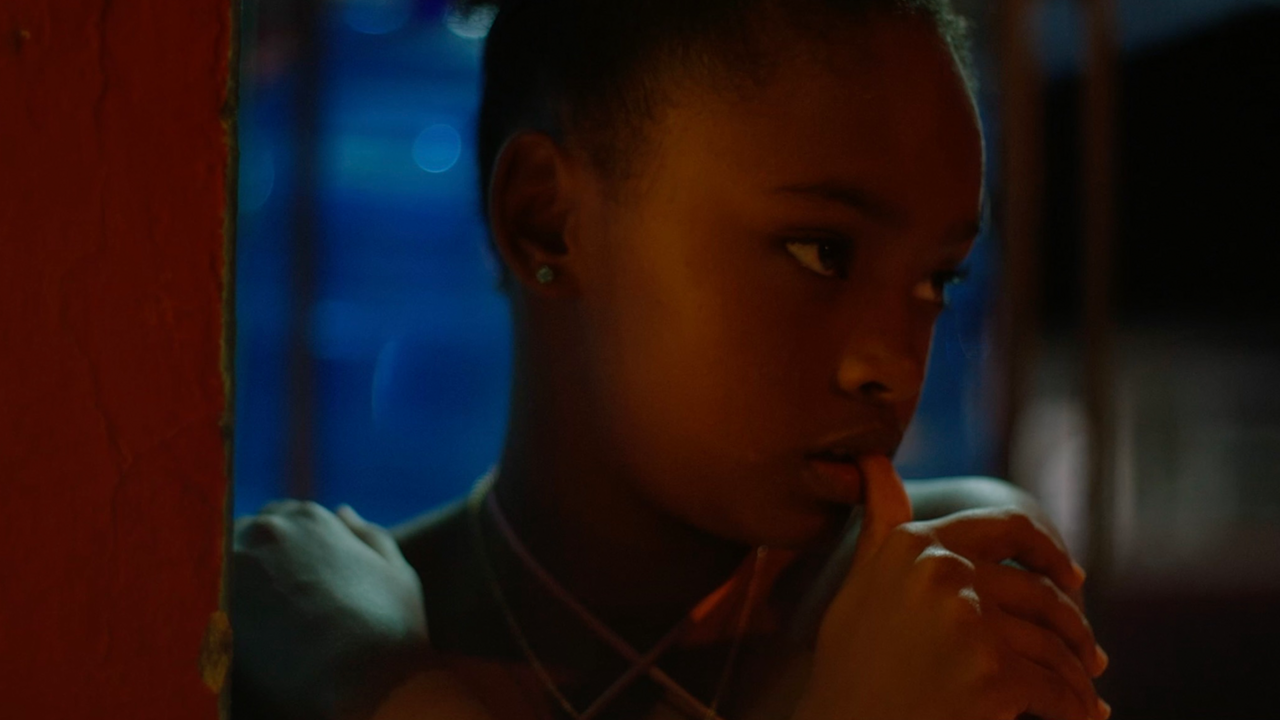There is a certain type of bravery to make a debut film with the subject matter of Boca Chica. Director Gabriella Moses navigates a plethora of social issues in a compact 90 minutes that is impressive in itself. There are not a lot of Dominican stories on the big screen, less about pre-adolescence, so to see Boca Chica play at the scale of Tribeca Film Festival shows there is hope for more.
Boca Chica is about Desi (Scarlet Camilo), a 12-year-old girl who loves to sing and dreams of being famous for her talents. Though she is young, most of her time is spent working at her mom’s, Carmen (Lia Chapman), beachside restaurant, making sure the mostly empty tables are serviced. All the while, her brother Fran (Jean Cruz) is working in New York as a delivery person and moonlighting as a talented accordion player. Tensions rise as Elvis (Richarson Díaz) plans to have his wedding at the restaurant with his Texas-born fiance, bringing to light the darkness of DR’s Boca Chica.

Moses puts the objectification of women and childhood innocence at the film’s epicenter. Desi and other girls her age are told repeatedly that they are now women and must uphold the responsibilities of adulthood. Elvis brings form-fitting dresses for all the girls attending the wedding, so they can appear like mujeres. When Elvis initially arrives in town, he tells Desi, “If you were older and I weren’t getting married, I would be all over you.” And so the film exposes a deep-seated issue that lingers throughout the society of Boca Chica, an insidious problem that comes from survival instincts.
The largest sector of Dominican commerce revolves around tourism. Foreigners from all over the world come to the island of Hispaniola to enjoy the beaches of all-inclusive resorts while being served by people who accommodate their any desire. Characters like Elvis and Carmen have found ways to capitalize on those desires by exploiting the abundant youth that surrounds them. Dominican citizens who don’t want to be in the service industry tend to find a way to the US or work in informal industries (sex work, gambling, etc.) This troupe can be found in other films too, like Bantu Mama (2021) and Sanky Panky (2007).
On the subject of objectification, Moses uses this story to hold accountable the society that sexualizes young girls. Older white tourists leer at the girls and try to solicit favors from them. Elvis also runs a “travel agency” that matches locals with wealthy tourists in what seems like trafficking. There is a lot of grace in the cinematography to distinguish how unsettling this behavior is. One of the most ominous moments of the film is seeing Desi sitting alone by a pool when she notices a husky white man staring at her from an above railing. It put me right out of my skin!

The film is clearly intent on socially persecuting the wickedness of patriarchy, but it departs with a wildly unresolved flavor. As in most Dominican films, the solution here is to leave and go to America – much too easy of a way out in my opinion. Millions of people live in the Dominican Republic in difficult situations. Surely, Desi and her brother can carve out a place for themselves on the island without exploitation.
And as a mother, Carmen isn’t beyond saving – she can make up for the wrong she has done. Carmen is like many Dominican mothers who had a demanding upbringing and had to work hard to get to a point where raising her child is comfortable and sustainable. Yet, somehow, some way, Carmen’s parental attachment style is tinged with inconsistent affection. She yells at Desi about how she has it easy and doesn’t know what her mother went through to provide for her. That sentiment invokes an unspoken debt that Desi must forever pay by being obedient or encountering hostility. It’s a frustrating pattern and one that Boca Chica doesn’t adequately resolve.
The film does make a concentrated effort to bring to light what plagues Dominican society, specifically within femininity, but it falls short of saying something meaningful about anything in particular. I would still recommend people seek it out if they are familiar with the town of Boca Chica or have an interest in Dominican culture – linguistically, the Dominican Spanish is phenomenal! Gabriella Moses has made an authentic atmosphere that is uniquely Dominican, but in the end, Boca Chica is a film that attempts to discuss too many issues in its quick run time.

